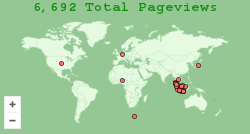Enhancing mosque governance through mobile-based system: a case study at Baitussyarif Muhammadiyah Jambi
DOI:
https://doi.org/10.63088/sf6bye60Keywords:
Mobile-Based Information Systems, Mosque Governance,, Digital TransformationAbstract
Purpose: This study addresses the inefficiencies in mosque governance, focusing on Masjid Baitussyarif Muhammadiyah, Jambi. The research aims to improve administrative processes, financial transparency, and community engagement through an Android-integrated management system, emphasizing the growing relevance of digital solutions in religious organizations.
Methods: Using a participatory action research framework, the system was developed and implemented through collaborative efforts with mosque administrators. Key activities included needs assessment, agile system design, training sessions, and iterative feedback collection. Data were analyzed through a mixed-methods approach combining quantitative surveys and qualitative interviews.
Results: The system reduced administrative workload by 45%, increased financial transparency, and enhanced user engagement, with 85% of users reporting high satisfaction. The initiative also promoted digital literacy within the community and fostered trust between the mosque management and congregants.
Conclusions: The Android-based system demonstrates significant potential for improving mosque governance and community empowerment. While challenges such as initial resistance and connectivity issues remain, the findings suggest that mobile-based information systems can bridge the gap between traditional practices and modern governance needs. This model offers a scalable framework for similar organizations seeking digital transformation.
Downloads
References
Anggraini, R. (2021). Rancang Bangun Sistem Informasi Administrasi Pengelolaan Dana Masjid Berbasis Web (Studi Kasus: Masjid Al-Muttaqin). Jurnal Teknologi Dan Sistem Informasi (JTSI), 2(3), 109–118. http://jim.teknokrat.ac.id/index.php/JTSI
Beck, K., Beedle, M., van Bennekum, A., et al. (2021). Manifesto for Agile Software Development. Agile Alliance. https://agilemanifesto.org
Brennan, N. M., Subramaniam, N., & van Staden, C. J. (2019). Corporate governance implications of disruptive technology: An overview. British Accounting Review, 51(6).
Nikita, N. A., Azim, K. S., Jafor, A. H. M., Shayed, A. U., Hossain, M. A., & Khan, O. U. (2024). Digital Transformation in Non-Profit Organizations : Strategies , Challenges , and Successes. 2(5), 1–21.
Pratama D. (2022). Perancangan Sistem Informasi Masjid Berbasis Website (Studi Kasus Masjidjami Al-Mukaromah). J Ilmu Komput dan Sci. 1(03):236–41.
Putra R.S., Agustin W., et.al. (2022). The Application of Naïve Bayes Classifier Based Feature Selection on Analysis of Online Learning Sentiment in Online Media. J Transformatika, 20(1):44–56.
Raynor, K. (2019). Participatory Action Research and Early Career Researchers: The Structural Barriers to Engagement and Why We Should Do It Anyway. Planning Theory and Practice, 20(1), 130–136.
Ulfah, A.N., Anam, K.M. (2022). Sentiment Analysis of the Convict Assimilation Program on Handling Covid-19. J Inf., 10(2):209–215.
Yaakub, S., Devitra, J. (2017). Sistem Informasi Manajemen Aset Berbasis Web Pada Politeknik Jambi. J Manaj Sist Inf., 2(3):610–28.
Yaakub, S., Nugraha, H., (2022). Analisis dan perancangan sistem informasi E-klinik Basmallah pada masa Pandemi Covid-19. J Inf Pol., ;8(2):9–17.
Downloads
Published
Issue
Section
License
Copyright (c) 2025 Saleh Yaakub, Wawan Joko Pranoto, Taghfirul Azhima Yoga Siswa, Ika Safitri Windiarti, Rida Priyanti, Alghazali (Author)

This work is licensed under a Creative Commons Attribution 4.0 International License.
Authors retain copyright and grant the journal right of first publication with the work simultaneously licensed under a Creative Commons Attribution 4.0 International License that allows others to share the work with an acknowledgement of the work's authorship and initial publication in this journal.





